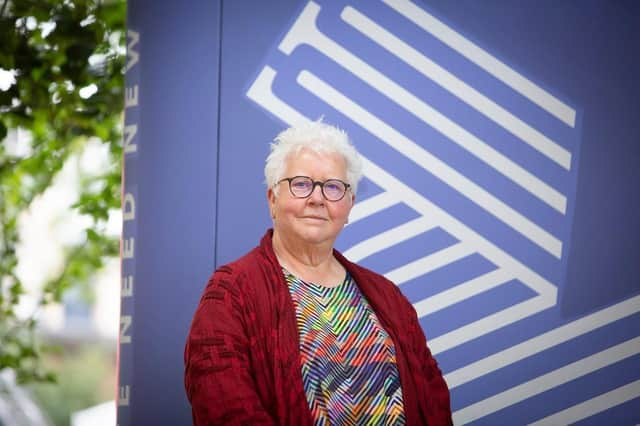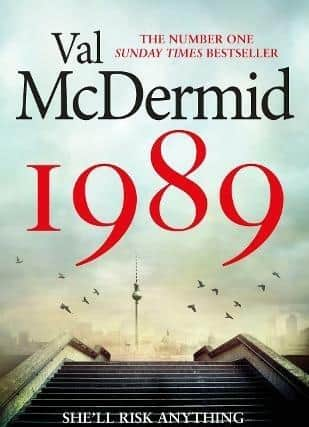Book review: 1989, by Val McDermid


Val McDermid is now recognized as “the Queen of Crime”. She has deservedly won a devoted readership and – which is more difficult – kept it too. 1989 is the second book in a projected five-novel sequence, starring the investigative reporter Allie Burns. The first was 1979. The next, one presumes, will be 1999.
1989 begins with Allie at the Memorial Service for the victims of the Lockerbie bombing. But this is misleading, for this is not to be another investigation of that terrorist horror. Her being there serves only to introduce us to her boss, the bullying megalomaniacal newspaper proprietor Wallace (Ace) Lockhart. Lockhart is clearly based on Robert Maxwell, though he is given only one child, a daughter called Genevieve. Like Maxwell, Lockhart has political and commercial involvement with the Soviet block countries. His attempt to use Genevieve, head of his scientific book publishing firm, to ingratiate himself with idealistic dissidents as the Soviet Empire crumbles, is at the heart of the novel, providing its most dramatic scenes.
Advertisement
Hide AdAllie’s investigations are mostly concerned with the treatment or lack of treatment for people with HIV and AIDS. It is her investigation into callous and immoral experiments by Big Pharma that takes Allie to Berlin, where she runs into real danger thanks to her selfless commitment to the truth or, if you prefer, her rashness and conceit. She is quick to question others, but not herself. Still, if Lockhart and his sidekicks do the dirty on her, she has many admiring friends and is settled in her home life with her beloved and loving partner Rona .


There is a great deal to enjoy in this novel. If the villains are a bit too obvious and their relations with Allie too predictable, McDermid remains a masterly setter of a scene and developer of a storyline. There is an agreeable warmth to much of the book, and the evocation of the world of journalism and politics of the late 20th century is convincing. Many younger readers may find it remarkable: can things really have been that bad then, society so narrow and intolerant? Well, yes, indeed it was often much as McDermid describes, and if those of us who lived through these days look back on them sometimes with nostalgia, McDermid shows there is cause for shame too. One of the intentions of this sequence-in-progress is, one assumes, to chart social, political and moral change over the decades. Quite rightly too, the characters she approves of are already alert to the threat of climate change. Here she isn’t – whatever the young many think – being wise after the event. Some were already singing that song in the 80s, though fewer were listening then.
Yet, sadly, this isn’t one of McDermid’s best books. It is very long and very slow. There is scarcely any tension because the distinction between good and bad characters is too clear, too blatant. Unlike, for instance, William McIlvanney’s Laidlaw, Allie and her partner Rona never doubt their own virtue. There is no dark side to them as, to make another comparison with Scottish crime fiction, there is in Ian Rankin’s Rebus.
All this helps to make 1989 a comforting book, one that will be deeply enjoyed, but also one that will disturb nobody, as the best crime fiction does. As a social historical record it’s good and no doubt gives a fair picture of the time that was. But there is also a touch of complacency here too. Look, McDermid seems to say, at how much better we are today than we were then. Fair enough perhaps; as a social novel this will surely flatter many readers’ self-esteem.
As a crime novel, there is much to please, but, though it is agreeable and an entertaining enough read, it lacks tension, because the bad guys never surprise and have no depth. It never disturbs and never sparkles as her series with Dr Tony Hill and DCI Jordan did – partly, no doubt, because that couple were more mixed-up and on-the-edge than Allie and Rona are.
1989, by Val McDermid, Little, Brown, 416pp, £20. Val McDermid is appearing at the Edinburgh International Book Festival on 25 an 27 August.